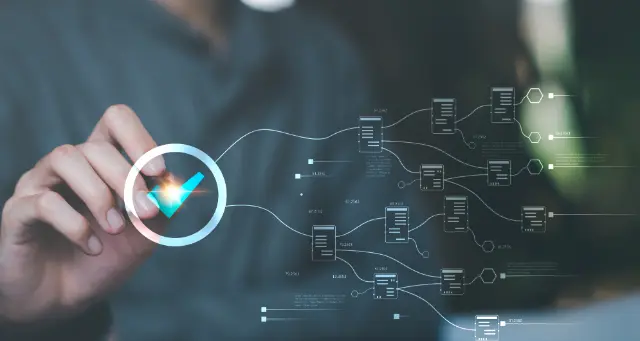Tenant Screening Automation: A Game-Changer for Real Estate Professionals
In the fast-paced world of real estate, efficient and accurate tenant screening is crucial for property managers to make informed decisions and maintain high occupancy rates. Tenant Screening Automation is revolutionizing this process, empowering property managers to streamline their workflow, minimize errors, and enhance the overall tenant experience.
With the advent of Python, AI, and cloud-based solutions, Tenant Screening Automation is becoming increasingly accessible and affordable for real estate businesses of all sizes. By leveraging these technologies, property managers can automate tedious and time-consuming tasks, freeing up their time to focus on building relationships and growing their portfolios.

The Power Trio: Python, AI, and Cloud for Enhanced Tenant Screening
Python-Powered Unattended Bots
Python’s versatility and ease of use make it an ideal choice for developing unattended bots that can automate repetitive and time-consuming tasks in tenant screening. These bots can be programmed to:
- Extract and verify applicant data from online applications
- Initiate and track background checks
- Compare applicant data against predefined criteria
- Generate automated notifications for applicants
Attended Bots for Customized Screening
Attended bots, also built with Python, provide real-time assistance to property managers during tenant screening. These bots can:
- Guide applicants through the application process
- Answer applicant queries
- Provide property managers with real-time updates on the screening status
Cloud Platforms: The Orchestration Powerhouse
Cloud platforms offer a comprehensive suite of tools and services that make tenant screening automation more efficient and scalable. Compared to traditional RPA/workflow tools, cloud platforms provide:
- Enhanced Orchestration: Cloud platforms enable seamless integration of various automation components, allowing property managers to create complex and customized workflows.
- Scalability and Reliability: Cloud platforms can handle large volumes of data and ensure high availability, ensuring smooth and uninterrupted automation processes.
- Advanced Security: Cloud platforms prioritize data security, providing robust protection for sensitive applicant information.
AI for Precision and Edge Case Handling
AI algorithms can significantly improve the accuracy and efficiency of tenant screening automation. Techniques such as:
- Image Recognition: Verifying the authenticity of identification documents
- Natural Language Processing (NLP): Analyzing and extracting key information from text-based documents
- Generative AI: Generating tailored lease agreements and other documents
Benefits of Cloud-Based Tenant Screening Automation
- Streamlined Process: Automating tenant screening eliminates manual tasks, reducing processing times and improving efficiency.
- Reduced Errors: Automated processes minimize human error, ensuring accuracy and consistency in screening decisions.
- Improved Compliance: Automated screening ensures compliance with fair housing regulations, protecting property managers from potential legal risks.
- Enhanced Applicant Experience: Online portals and real-time updates provide a seamless and convenient experience for applicants, fostering positive relationships.
- Increased Productivity: Property managers can focus on higher-value tasks, such as building tenant relationships and expanding their portfolios.

Crafting the Tenant Screening Automation Masterpiece
Building a robust and effective tenant screening automation system involves several key steps:
1. Process Analysis and Definition
Thoroughly analyze the existing tenant screening process to identify areas for automation. Define clear and specific requirements for each subprocess, including data inputs, outputs, and decision criteria.
2. Automation Development with Python
- Online Application Portal: Develop a user-friendly online portal using Python frameworks like Django or Flask.
- Data Extraction and Verification: Utilize Python libraries like BeautifulSoup and Pandas to extract and validate applicant data from online applications.
- Background Check Initiation: Integrate with third-party background check services via Python APIs.
- Decision-Making and Notifications: Establish automated decision-making criteria based on predefined rules. Send automated notifications to applicants regarding approval or denial.
3. Cloud Integration for Scalability and Security
- Cloud Platform Selection: Choose a reputable cloud platform like AWS or Azure that provides robust infrastructure and security features.
- Data Storage and Management: Utilize cloud databases like Amazon DynamoDB or Microsoft Azure Cosmos DB for secure and scalable storage of applicant data.
- Orchestration and Monitoring: Implement cloud-based workflow orchestration tools to manage and monitor the automation process.
4. Data Security and Compliance
- Encryption and Access Control: Encrypt sensitive applicant data both at rest and in transit. Implement role-based access controls to restrict data access to authorized personnel.
- Compliance Monitoring: Regularly monitor the automation system to ensure compliance with industry regulations and fair housing laws.
Advantages of Python over No-Code RPA/Workflow Tools
- Customization and Flexibility: Python allows for tailored automation solutions that can be adapted to specific business needs.
- Scalability and Performance: Python-based automations can handle large volumes of data and complex processes efficiently.
- Integration Capabilities: Python seamlessly integrates with various third-party services and data sources.
Algorythum’s Differentiated Approach
Algorythum recognizes the limitations of off-the-shelf RPA/workflow tools and adopts a Python-based approach for tenant screening automation. This approach provides:
- Customized Solutions: Tailored to the unique requirements of each property management company.
- Enhanced Performance: Optimized for speed and efficiency, ensuring seamless automation.
- Data Security and Compliance: Prioritized through robust encryption and access controls.
- Scalability and Flexibility: Designed to handle growing data volumes and evolving business needs.

Tenant Screening Automation: A Glimpse into the Future
The possibilities for extending and enhancing tenant screening automation are limitless. Here are a few exciting prospects:
- Predictive Analytics: Utilizing machine learning algorithms to predict applicant risk levels based on historical data, improving decision-making accuracy.
- Blockchain Integration: Creating a secure and transparent ledger for storing and sharing applicant information, reducing fraud and streamlining the screening process.
- Virtual Reality (VR): Conducting virtual property tours for applicants, providing a more immersive and engaging experience.
- Augmented Reality (AR): Enabling property managers to visualize applicant data in 3D environments, enhancing the decision-making process.
Join the Automation Revolution
Subscribe to our blog to stay updated on the latest advancements in Tenant Screening Automation and other industry-specific automation solutions.
Contact Us for a Free Consultation
Ready to transform your tenant screening process? Contact our team of experts at Algorythum for a free feasibility assessment and cost estimate tailored to your specific requirements. Together, let’s unlock the full potential of automation and revolutionize the real estate industry.

Algorythum – Your Partner in Automations and Beyond
At Algorythum, we specialize in crafting custom RPA solutions with Python, specifically tailored to your industry. We break free from the limitations of off-the-shelf tools, offering:
- A team of Automation & DevSecOps Experts: Deeply experienced in building scalable and efficient automation solutions for various businesses in all industries.
- Reduced Automation Maintenance Costs: Our code is clear, maintainable, and minimizes future upkeep expenses (up to 90% reduction compared to platforms).
- Future-Proof Solutions: You own the code, ensuring flexibility and adaptability as your processes and regulations evolve.









